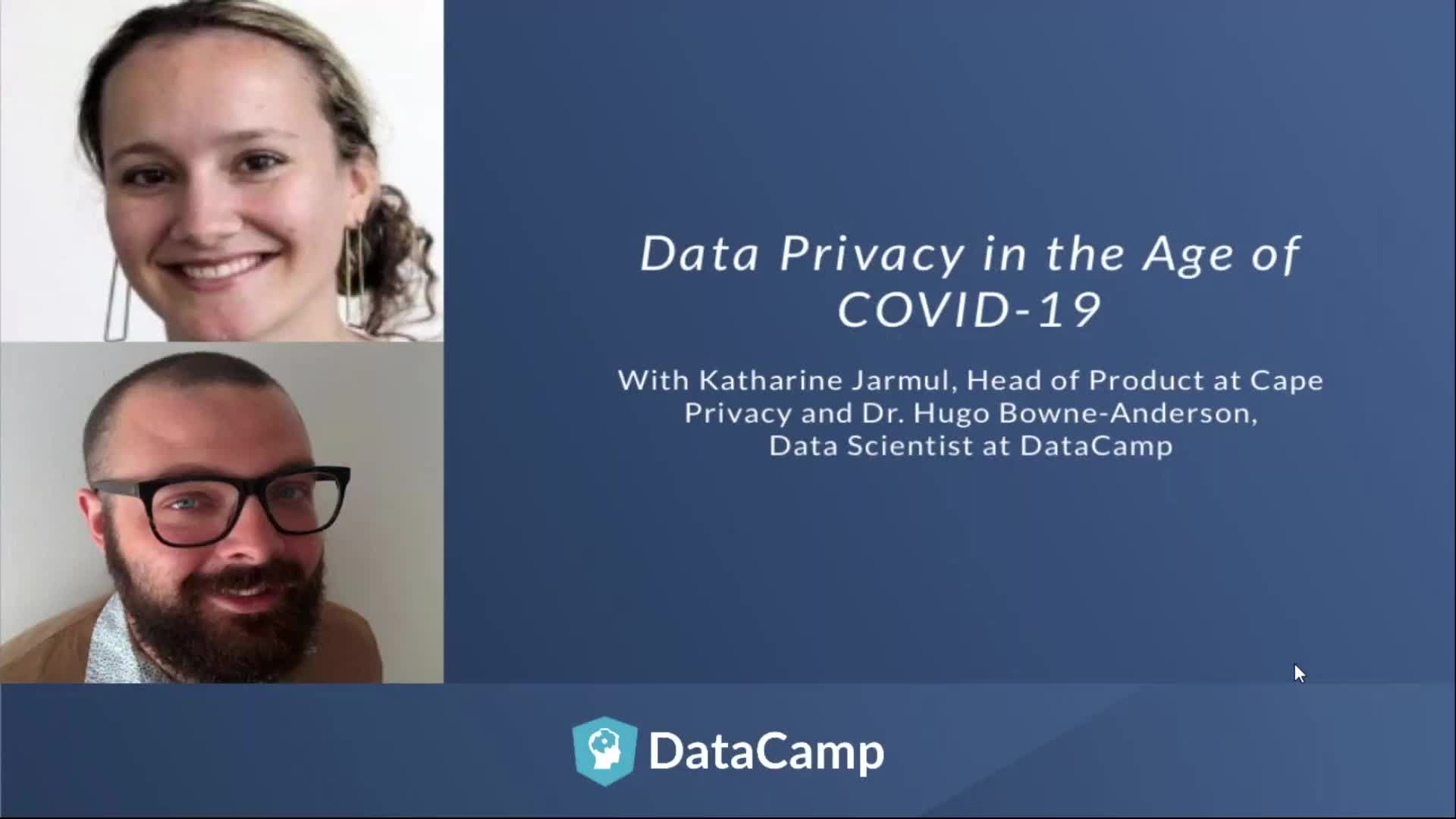Falantes


Katharine Jarmul
Treinar 2 ou mais pessoas?
Obtenha acesso à biblioteca completa do DataCamp, com relatórios, atribuições, projetos e muito mais centralizadosRelacionado
white paper
2022 Data Trends and Predictions
Read about 9 trends shaping data science in 2022 and beyondwebinar
Data Skills to Future-Proof Your Organization
Discover how to develop data skills at scale across your organization.webinar
How Data Science is Transforming Healthcare
Learn how data science is transforming healthcare across verticalswebinar
Data Trends and Predictions 2022
9 major data science trends that will impact organizations in 2022 and beyond.webinar
How AI Can Improve Your Data Strategy
Find out how AI, ML, and data science can inform your data strategy.webinar
Data Science for Business Leaders
Here's how to build a high-performance data team aligned with company strategy.Join 5000+ companies and 80% of the Fortune 1000 who use DataCamp to upskill their teams.
Loved by thousands of companies
